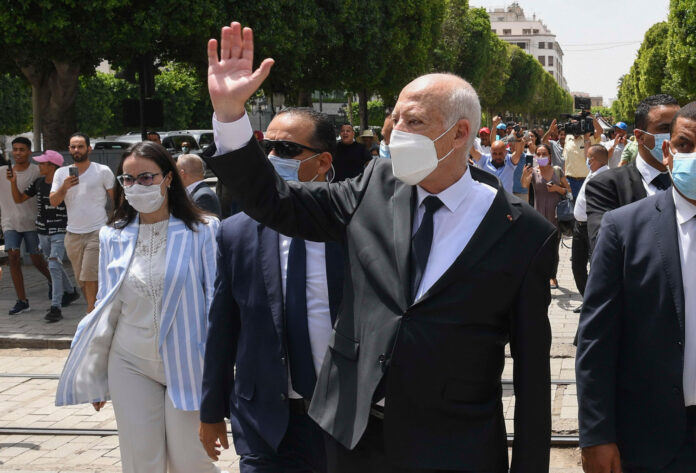When the congressman was asked if he came to intervene for the benefit of the Islamic Renaissance Movement (Ennahda) , he said “no”. This is, in fact, a response to the allegations of the Islamists, who say that the American delegation came to support Ennahda, or that it is the fruit of the influence of the lobby that it is trying to establish in Washington.
So far, foreign interventions have not achieved any penetration or known gains for the pre-July 25th ruling parties. Nobody wants them to come back and nobody defends them, or says a good word about them. Tunisian President Kais Saied persists in his position and plans and does not care much about what is going on around him, especially with regard to the opposition’s appeal to external pressures, the latest of which was the visit of the US Congress delegation and a statement by the G7 ambassadors in Tunisia.
All that is said by those who are looking for helping Tunisia to get out of the crisis is that everything that was before July 25 belongs to the past, and that attention is focused only on the future, which they let Tunisia define in the way it wants, provided that it speeds up its steps to respond to important elements, including negotiations with the IMF in order to obtain international support, which is necessary and urgent.
No one wants the former parliament to return with its ugly face, whether complete or modified, by abandoning representatives accused of corruption or who have cases in the courts, even if Rached Ghannouchi announced his resignation from the presidency of the parliament, a step that he was supposed to take for a long time.
Among the important externally required elements is “the urgent need to appoint a new prime minister in order to form a capable government that can address the current crises facing Tunisia,” as stated in the statement of the ambassadors of the seven countries.
The whole decision is now in the hands of Saied, and now is his chance to start making the comprehensive changes that he was planning and that were hampered by the conflict with the previous system. No one abroad will object if these changes lead to the rebuilding of institutions that handle communication and negotiation and undertake to implement Tunisia’s commitments.
External pressures can turn into a catalyst for Tunisia in reforming its economy, as positions so far express willingness to support Tunisia. Even if the external interventions came at the request of this or that party, or affected “national sovereignty,” in the end, it can be converted into a supportive element for the July 25 changes, especially as it came from strategic partners who have the right to be assured of the future of these changes and the prospects for cooperation with them.











